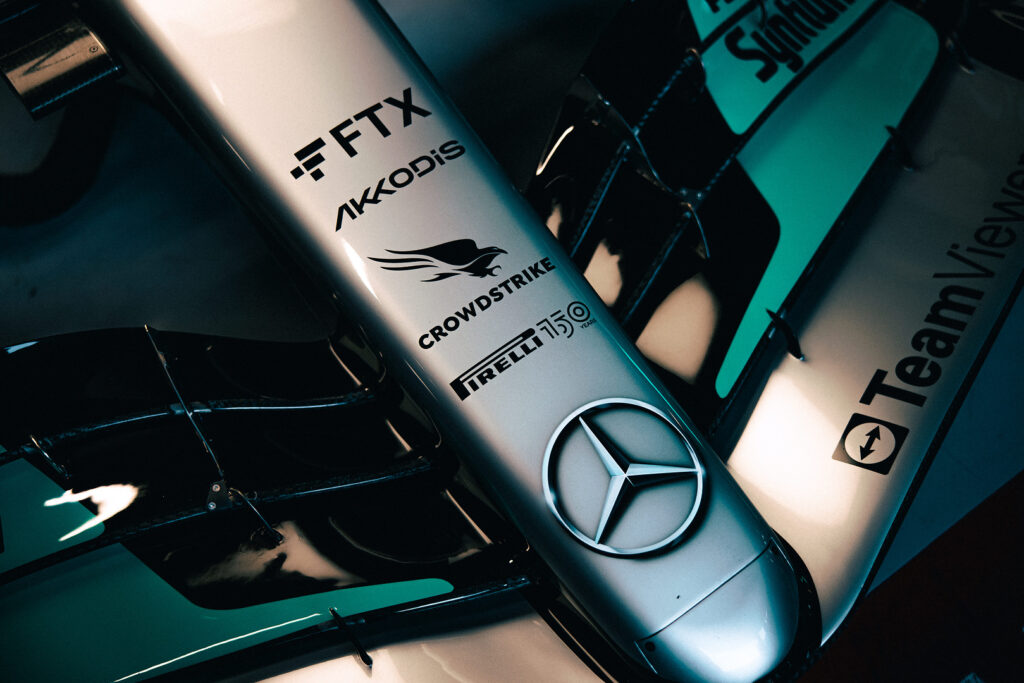
A storm has erupted in the world of finance and sports. Accusations involving FTX, one of the largest cryptocurrency exchanges, cast a shadow on well-known sports brands. Mercedes F1 and Major League Baseball teams are at the center of the scandal. What are the connections between these sports giants and the FTX exchange? Could this partnership have legal consequences?
In recent months, the worlds of cryptocurrencies and sports have converged around one of the hottest financial topics – the FTX cryptocurrency exchange crisis. This evolving situation draws attention not only to economic aspects but also to ethical and legal issues. At the center of this storm are two significant sports institutions: the Mercedes-AMG Petronas Formula 1 team and Major League Baseball (MLB) teams.
Both these sports organizations entered into promotional agreements with FTX, displaying the exchange’s logo on their platforms, including on racing cars, uniforms, and other marketing materials. What initially seemed like a typical sponsorship partnership quickly became a cause for concern.
A group of FTX users filed class action lawsuits in the Florida District Court, accusing both the Mercedes F1 team and MLB of complicity in an alleged “massive, multibillion-dollar global fraud” perpetrated by FTX. These lawsuits claim that both institutions either helped or actively participated in the fraudulent activities of the FTX Group, while also promoting unregistered securities.
The most telling element of the partnership between FTX and MLB were the FTX.US patches placed on MLB umpires’ uniforms. This was the first time in MLB history, dating back to the 19th century, that a sponsor’s logo appeared on umpire uniforms. In the context of the Mercedes F1 team, the accusation highlights that the team prominently displayed the FTX logo on their cars, merchandise, and marketing materials.

Additionally, the lawsuit states that FTX systematically expressed support and congratulations for Mercedes F1 and its drivers, creating a “cloak of trust among Mercedes F1 fans”. This suggestion indicates that this strategy was particularly effective due to parallel promotions by Mercedes F1 for FTX.
As a result of these events, questions arise about the moral and legal responsibility of sports giants in the context of their cooperation with companies from the cryptocurrency sector. What could be the consequences of such connections? Should sponsorship agreements be more transparent and regulated, especially in the context of new, dynamically changing markets like the cryptocurrency market?
It is worth noting that Major League Baseball has already ended its five-year promotional agreement with FTX, and the Mercedes F1 team has also severed ties with the exchange, removing its logo from cars and merchandise. This indicates a growing awareness of risk and the need for caution in the worlds of sports and finance.
This case sheds new light on the relationship between the world of sports and the rapidly developing cryptocurrency sector. It also raises questions about the future of such partnerships and their impact on both the world of sports and finance.
Photo: Mercedes
